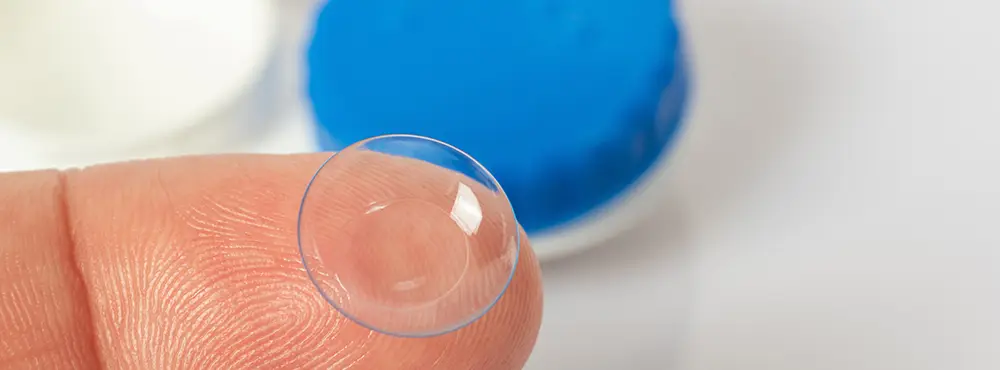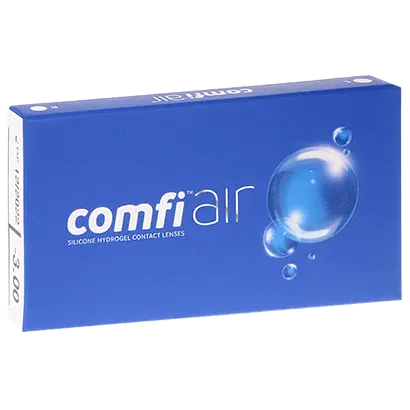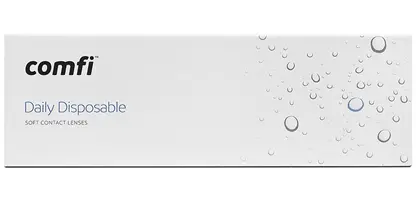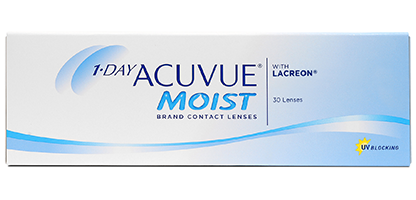It’s a known fact that UV rays can cause harm to the body, especially the eyes. Therefore, it is important to protect your eyes even on the cloudiest of days, wear contact lenses to protect your eyes.
How do UV protection contact lenses work?
Contact lenses with a UV filter absorbs ultraviolet radiation and limits the amount that reaches the surface of your eye. These contact lenses also provide an extra layer of protection from harmful UV radiation that can enter through the sides of your sunglasses.
Wearing sunglasses and UV blocking contact lenses can be incredibly beneficial to your eye health and can reduce the possibility of developing some eye diseases including Age-related Macular Degeneration. Overexposure to harmful UV rays cannot only cause sunburn and skin cancer but can also damage your eyes and can cause various eye related issues:
- Age-related macular degeneration (AMD): This is when part of the retina becomes damaged, resulting in blurred or total vision loss in the centre of a person’s visual field.
- Cataracts: This is when the lens within the eye becomes cloudy over time causing blurred vision. It is the primary cause of vision loss in people over 40.
- Eye cancer: Including melanoma, which results in blurred vision, flashes of light, vision loss, pain in or around the eye, a dark patch in your eye, the bulging of one eye and a lump on your eyelid or in your eye.
- Pterygium: Also known as surfer's eye, is a triangular thickening of the conjunctiva and involves the cornea. In some cases, it can cover the pupil, causing vision problems.
- Photokeratitis: Also known as snow blindness, this is the result of your cornea being akin to sunburn which causes inflammation. It usually results in light sensitivity, eye pain and twitching.
Different contact lenses offer different levels of UV protection based on the percentage of UV rays which they can block. They are labelled as either class 1 or class 2 UV blocking lenses.
Class 1 UV filters absorb more than 90% of the UVA and more than 99% of the UVB and Class 2 UV filters, more than 50% of the UVA and more than 95% of the UVB.
UV Protection contact lenses
Do all contact lenses provide UV protection?
Not all the contact lenses come with UV blocking filter. You should check the description of the lens you’re after, which should mention if the lens offers UV protection.
What are the benefits of using UV protection contact lenses?
The lenses will just give additional protection to your eyes against harmful UV rays. Wearing UV protected contact lenses alongside a protective eyewear is the best way to protect your eyes as well as the areas surrounding your eyes.
Do I still need to wear sunglasses if I have UV protection contact lenses?
Whilst UV protection is an excellent feature, this filter is not a replacement for UV protecting sunglasses. A pair of UV blocking sunglasses will provide full protection from harmful UV rays and can also protect the skin around your eyes from sun damage. Another thing to consider is ‘glare’, contact lenses cannot help with glare, such as while driving. This is the reason why people also like to wear a combination of contacts and glasses/ sunglasses while driving.
Bestselling UV Protection contact lenses
How else can I protect my eyes?
- Using sunglasses with UV protection will cover the eye and surrounding area, providing a high level of protection. If you spend lots of time outdoors, this is a great option for you. While UV contact lenses offer protection from UV rays, the coverage is limited, and they are not a substitute for protective UV absorbing eyewear. So, make sure you wear sunglasses even on cloudy days.
- Wearing a hat is another simple way to protect your eyes from the sun. Choose a hat with a broad, dark brim that provide shade top your eyes and help with glare at the same time.
Please note:
When choosing a pair of sunglasses, make sure you check the CE mark to ensure that they offer adequate protection. A CE marked UV400, or British Standards BS EN ISO 12312-1:2013, will offer you a safe level of UV protection.
You can be sure to find a range of sunglasses with UV protection at Feel Good Contacts. Shop from a variety of designer brands including Ray-Ban, Gucci and more; enjoy up to 60% off the entire collection.
Disclaimer: The advice in this article is for informational purposes only and does not replace medical care or an in-person check-up. Please check with an eyecare professional before purchasing any products or remedies. For information on our article review process, please refer to our Editorial Policy.

 Offers
Offers Account
Account
 Favorite
Favorite
 Basket
Basket

 OFFERS
OFFERS



















